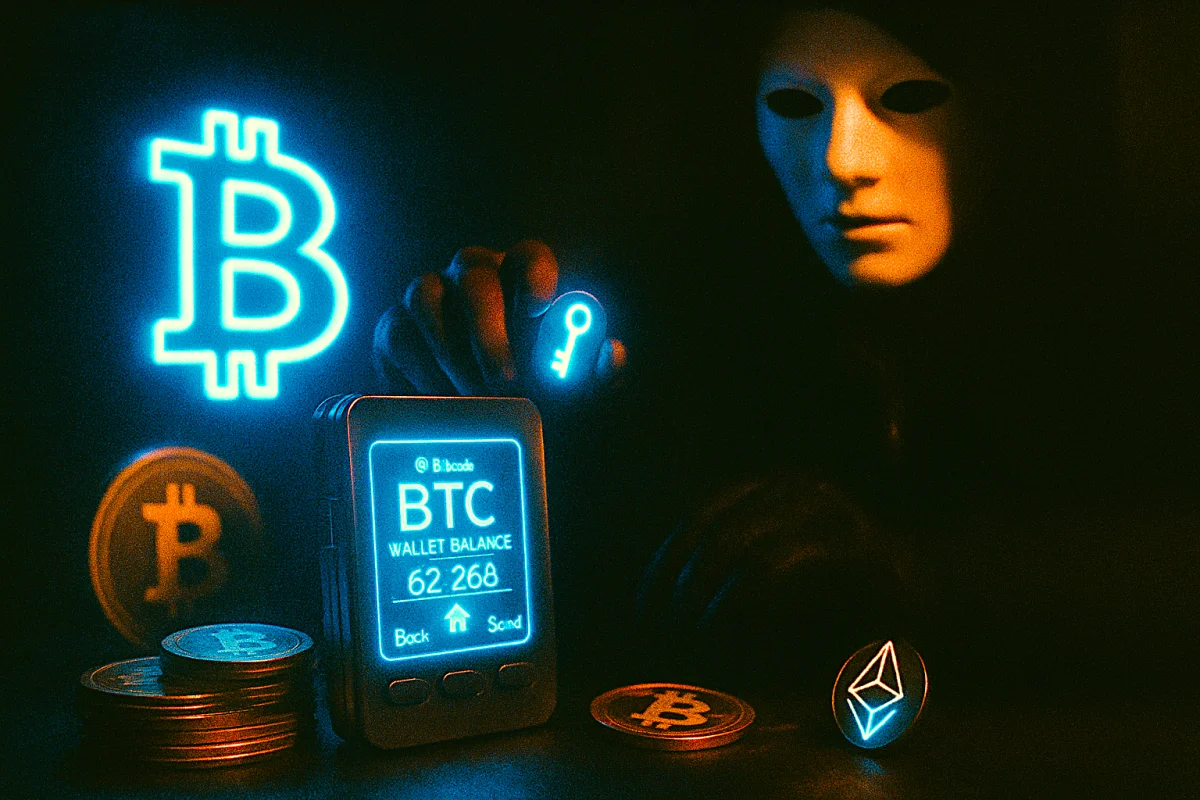Crypto Wallets: How to Avoid Scams?
In the past decade, cryptocurrencies have rapidly become a global financial trend. Millions of people use crypto wallets daily to store and transfer Bitcoin, Ethereum, or other tokens. Yet, with rising popularity comes growing risk—online scams, phishing attacks, fake platforms, and social engineering fraud. This makes crypto wallet security a top priority for every modern user. But how can you avoid scams and keep your assets safe?

What is a Crypto Wallet?
A crypto wallet is a software or hardware device that stores private keys. These keys are the “access pass” to managing your digital assets. Wallets fall into two main categories: Hot Wallets—connected to the internet, convenient but less secure; and Cold Wallets—offline storage, offering stronger protection against hacking attempts.
Common Scam Techniques
Fraudsters in the crypto world are constantly developing new tricks. The most common include:
- Phishing — Fake websites or emails designed to steal login details.
- Ponzi schemes — Projects promising “guaranteed profit,” funded only by new investors’ money.
- Fake apps — Mobile apps on app stores that steal your seed phrase.
- Social engineering — Scammers contacting victims directly with fake offers or “urgent” requests.
- Private key theft — The most dangerous method, where users are tricked into handing over their keys.
How to Protect Your Crypto Wallet
Several best practices can significantly improve your security:
- Use cold wallets — Hardware devices like Ledger or Trezor are highly secure.
- Enable 2FA — Two-factor authentication protects accounts from unauthorized access.
- Never share your seed phrase or private key — Losing them means losing all your assets.
- Create backups — Store your seed phrase offline in a safe location.
- Verify web addresses — Always double-check official platforms before entering details.
- Secure your devices — Use antivirus software and keep systems updated.
Choosing Safe Platforms
It’s not just the wallet that matters—where you trade is equally important. Established exchanges like Binance, Coinbase, and Kraken offer advanced security features and years of operational reliability. Completing KYC (Know Your Customer) verification is also critical, as it reduces risks associated with fake accounts and suspicious activities.
What to Do If You Fall Victim
If you become a victim of fraud, fast action is essential. Immediately lock your wallet or exchange account, contact customer support, and attempt to cancel transactions. At the same time, report the incident to cybersecurity agencies or the police, as timely alerts may protect others—and in some cases, recover part of your funds.
Conclusion
Your crypto wallet is the core of your financial security in the digital world. Without the right precautions, your assets can vanish overnight. But with knowledge, vigilance, and modern security tools, you can keep your crypto safe. The golden rule remains: “Never trust just one system, and always verify every detail.” 👉 Which do you think is safer: cold wallets or online platforms?
✍ Article Author
- Registered: 26 July 2025, 15:34




 Silent Cat 🐾
Silent Cat 🐾